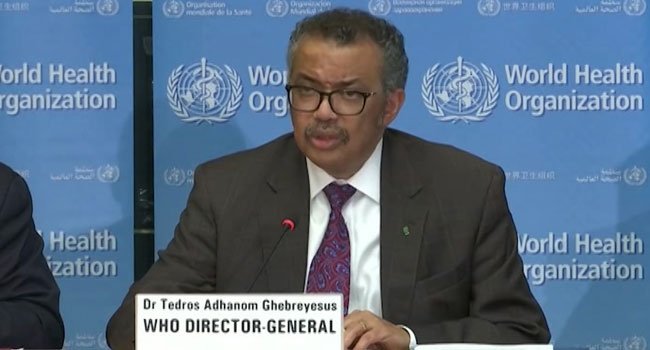
10 Critical Things WHO Wants Everyone To Know About Coronavirus
The coronavirus outbreak has stirred some panic across the world, with many confused as to what can be done to stop this virus from spreading, as well as save lives.
According to the World Health Organization (WHO), in the past 24 hours, China reported 329 cases – the lowest in more than a month.
As of 6 am Geneva time this morning, China has reported a total of 78,959 cases of COVID-19 to WHO, including 2791 deaths.
Outside China, there are now 4351 cases in 49 countries and 67 deaths.
While there are hopes that vaccines would soon be made available, there are 10 major things the WHO wants everyone to know about this virus and they are:
1. As we keep saying, clean your hands regularly with an alcohol-based hand rub, or wash them with soap and water.
Touching your face after touching contaminated surfaces or sick people is one of the ways the virus can be transmitted. By cleaning your hands, you can reduce your risk.
2. Clean surfaces regularly with disinfectant – for example, kitchen benches and work desks.
3. Educate yourself about COVID-19. Make sure your information comes from reliable sources – your local or national public health agency, the WHO website, or your local health professional. Everyone should know the symptoms – for most people, it starts with a fever and a dry cough, not a runny nose. Most people will have mild disease and get better without needing any special care.
4. Avoid traveling if you have a fever or cough and if you become sick while on a flight, inform the crew immediately. Once you get home, make contact with a health professional and tell them about where you have been.
5. If you cough or sneeze, do it into your sleeve or use a tissue. Dispose of the tissue immediately into a closed rubbish bin, and then clean your hands.
6. If you are over 60 years old, or if you have an underlying condition like cardiovascular disease, a respiratory condition or diabetes, you have a higher risk of developing severe disease. You may wish to take extra precautions to avoid crowded areas or places where you might interact with people who are sick.
7. For everyone, if you feel unwell, stay at home and call your doctor or local health professional. He or she will ask some questions about your symptoms, where you have been and who you have had contact with.
This will help to make sure you get the right advice, are directed to the right health facility, and will prevent you from infecting others.
8. If you are sick, stay at home and eat and sleep separately from your family, use different utensils and cutlery to eat.
9. If you develop shortness of breath, call your doctor and seek care immediately.
10. It’s normal and understandable to feel anxious, especially if you live in a country or community that has been affected. Find out what you can do in your community. Discuss how to stay safe with your workplace, school or place of worship.
WHO’s Director-General, Tedros Adhanom Ghebreyesus in a statement on Friday noted that together, “we are powerful”.
Mr Adhanom further stressed that containment starts with every individual.
He further revealed that the greatest enemy right now is not the virus itself, but fear, rumours, and stigma. Adding that “our greatest assets are facts, reason, and solidarity”.
